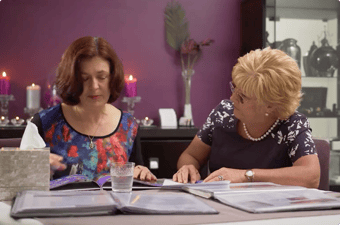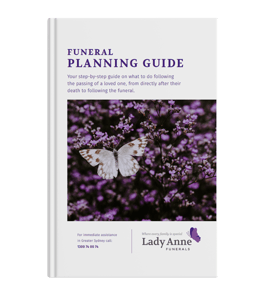All deaths are difficult, but an expected death may not bring about the same response as a sudden passing. The passing of a loved one under sudden or tragic circumstances may cause us to feel as though we have gone into 'shock' when we find out. This feeling of shock is called an 'acute stress response'. By learning more about it you may be able to move through it with a greater sense of comfort that it will pass.
Grief comes in waves and may last a very prolonged period. In the early minutes and days following news of a death, you may experience an acute stress response. Acute reaction means the symptoms come on fast and do not usually last a long time. There are several symptoms you can look out for including:
- Physical symptoms. An elevated heart rate, nausea, chest pain, headaches, abdominal pains and breathing difficulties.
- Dissociative Amnesia. This is where you block out information or details from the time of the incident or receiving the bad news. The memories of these moments become buried as a protective mechanism. You cannot easily access them during the stress response.
- Dissociation. A feeling of emotional detachment from others. You may feel numb to your surroundings and the things happening around you.
- Avoidance of triggers. You avoid people, conversations, places, or physical reminders of your loved one. This is a protective mechanism that prevents you from recalling memories that are too difficult to face.
- Intrusive flashbacks. You experience the event again in nightmares, unpleasant thoughts or unwanted memories.
- Depersonalisation. You might feel like you are outside of your body and observing things happening as an onlooker.
- Increased arousal or anxiety. You feel a heightened state of alertness and have difficulty sleeping and concentrating. You are more sensitive to your surroundings. You may feel startled by things that normally would not startle you.
Not everyone will experience these in the same order. The stages include:
- Shock and denial
- Pain and guilt
- Anger and bargaining
- Depression, reflection, and loneliness
- The upward turn
- Reconstruction and working through
- Acceptance and hope
During this time, the endocrine system triggers the release of stress hormones such as adrenaline. This initiates a rapid physiological response. For example, let us say you have a near miss when driving your car. Or you get a fright while watching a scary movie. These events can trigger an automatic reaction from your body. So too will something more intense like the death of a loved one.
In recognising any of these symptoms in yourself or a loved one, it is important to know that this is all a normal reaction. For many, planning the funeral or memorial of your loved one provides an opportunity to shift your focus and celebrate the life lost.
It is also a beautiful opportunity to tap into the support of others through the sharing of stories and memories. This can help to alleviate some of the stress responses experienced.
There is no precise road map for working through your grief. Be kind to yourself in the early days when your stress response is taking its hold on your body and mind. Let family and friends support you as best they can and allow the celebration of life to help with your grief. Once the acute stress response has settled down, it can then be a good time to seek traditional grief support.








